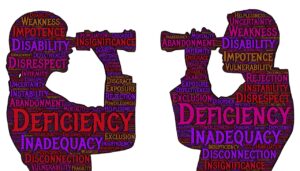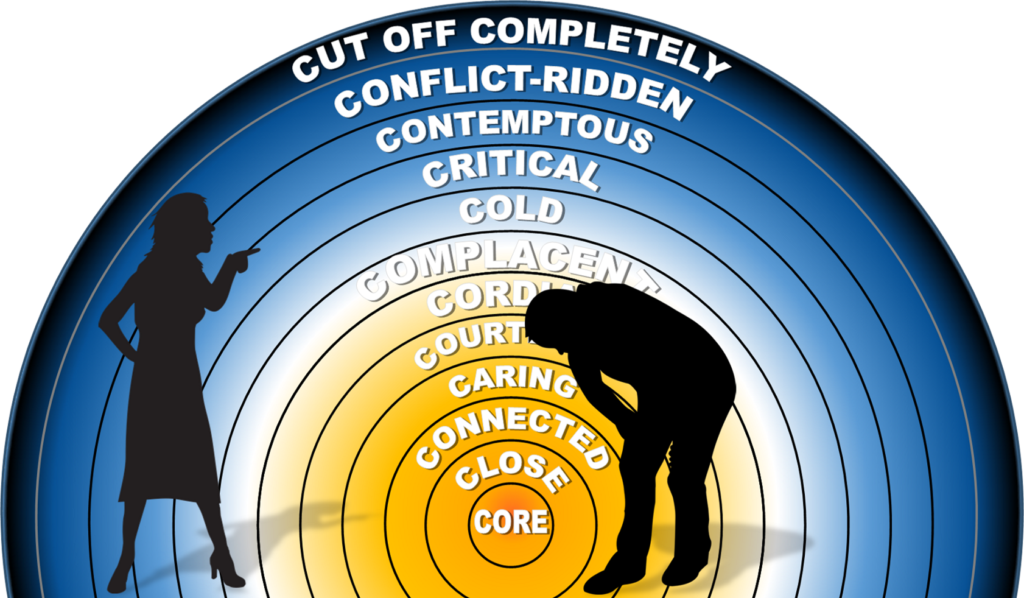 I went to my first NA meeting a couple of days ago. NA stands for Narcotics Anonymous, a 12-step program for those addicted to drugs. The meeting opened with everyone introducing themselves around the circle, stating their name, followed by the words, “…and I’m an addict.” In unison, the group members matter-of-factly responded, “Hi so-and-so.”
I went to my first NA meeting a couple of days ago. NA stands for Narcotics Anonymous, a 12-step program for those addicted to drugs. The meeting opened with everyone introducing themselves around the circle, stating their name, followed by the words, “…and I’m an addict.” In unison, the group members matter-of-factly responded, “Hi so-and-so.”
I was at this meeting because some of my counseling clients had suggested it would be good for me to see firsthand the value of groups like this as support systems for struggling people. Unsurprisingly, I was the only one who said, “I’m not an addict,” when it was my turn.
That they were so quick to call themselves addicts was unsettling to me as I’ve always balked at labels like “addict.” I would have rather they said, “I struggle with addiction,” (focusing on their behaviors) rather than calling themselves an “addict” (which speaks to their identity.)
But I’m starting to rethink my view on this. Although many of them had been clean for a decade or more, these were people who had a clear understanding of their vulnerabilities and potential for relapse and were not afraid to admit their inherent weaknesses. There was a palpable sense of humility in the room. There was no judgment here; only knowing looks that communicated, “We’ve all been there, buddy.” This was a group of flawed people who identified as such. There was no pride, no condescension, no raised eyebrows. In this room, everyone was on an equal plane. Except me. I wasn’t an addict. Or so I thought.
But now after a couple of days of reflection, I realize that those precious people were on to something. They had a more accurate view of their own nature than I did. Because–truth be told–I am an addict too.
No, I’m not addicted to drugs or alcohol or porn or sex or any of the standard vices we think of when we think of addiction. But I am addicted to sin in its various forms. I’m addicted to pride, ego, comfort, attention, acceptance, accomplishments, gluttony, extremeness, efficiency, productivity, and recognition. In short, I’m addicted to myself. Being a sinner is my identity; I’m not merely behaviorally challenged.
I’m so glad that my new NA friends helped me see that I’m also an addict. I’m always at risk of acting out of my sinful nature; indeed, relapse is always a potential with me. And, like my fellow addicts, I realize that my sin struggle will be lifelong, persisting until heaven.
“9 He also told this parable to some who trusted in themselves that they were righteous, and treated others with contempt: 10 “Two men went up into the temple to pray, one a Pharisee and the other a tax collector. 11 The Pharisee, standing by himself, prayed[a] thus: ‘God, I thank you that I am not like other men, extortioners, unjust, adulterers, or even like this tax collector. 12 I fast twice a week; I give tithes of all that I get.’ 13 But the tax collector, standing far off, would not even lift up his eyes to heaven, but beat his breast, saying, ‘God, be merciful to me, a sinner!’ 14 I tell you, this man went down to his house justified, rather than the other. For everyone who exalts himself will be humbled, but the one who humbles himself will be exalted.”
Luke 18:9-14 (ESV)
In this parable, Jesus points out that God forgives the one who humbly identified himself as a vile sinner, but not the “good” Pharisee, who merely focused on his proud behavior management. My NA experience was like being in a room of humble, broken, tax collectors.
A final lesson learned from the addicts was that there is no chance of improvement on our own. A foundational principle of NA, AA, or any 12-step program is that avoiding relapses requires the help of one’s “higher power.”
In my next post, I’ll explain my belief that the God of Christianity provides the only real solution for our sinful addiction to self.









 How to make your wife and kids feel unneeded…
How to make your wife and kids feel unneeded…

